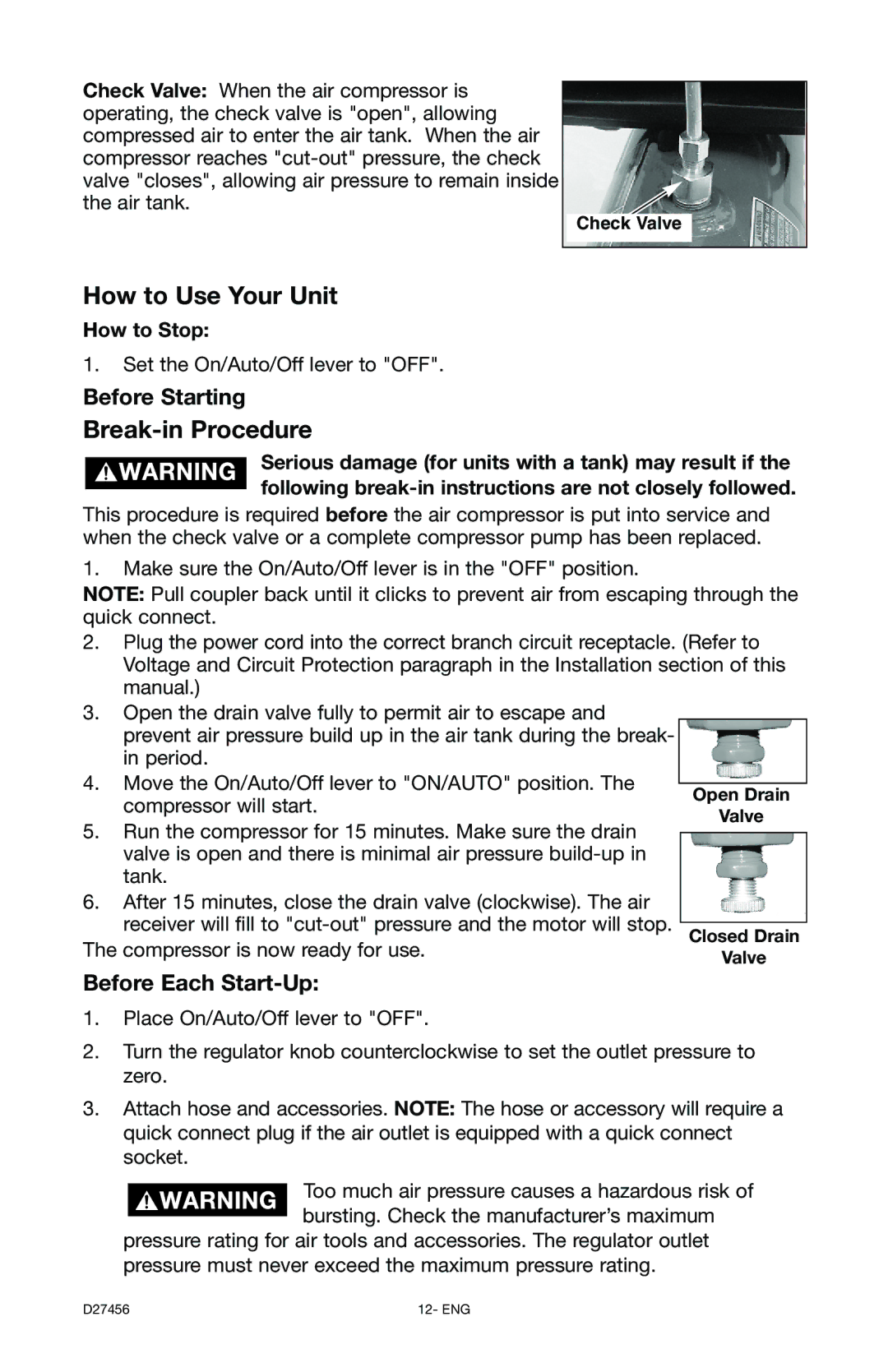
Check Valve: When the air compressor is operating, the check valve is "open", allowing compressed air to enter the air tank. When the air compressor reaches
Check Valve
How to Use Your Unit
How to Stop:
1.Set the On/Auto/Off lever to "OFF".
Before Starting
Break-in Procedure
Serious damage (for units with a tank) may result if the following
This procedure is required before the air compressor is put into service and when the check valve or a complete compressor pump has been replaced.
1.Make sure the On/Auto/Off lever is in the "OFF" position.
NOTE: Pull coupler back until it clicks to prevent air from escaping through the quick connect.
2. Plug the power cord into the correct branch circuit receptacle. (Refer to Voltage and Circuit Protection paragraph in the Installation section of this manual.)
3. Open the drain valve fully to permit air to escape and prevent air pressure build up in the air tank during the break- in period.
4. Move the On/Auto/Off lever to "ON/AUTO" position. The compressor will start.
5.Run the compressor for 15 minutes. Make sure the drain valve is open and there is minimal air pressure
6.After 15 minutes, close the drain valve (clockwise). The air
receiver will fill to
Before Each Start-Up:
1.Place On/Auto/Off lever to "OFF".
2.Turn the regulator knob counterclockwise to set the outlet pressure to zero.
3.Attach hose and accessories. NOTE: The hose or accessory will require a quick connect plug if the air outlet is equipped with a quick connect socket.
Too much air pressure causes a hazardous risk of bursting. Check the manufacturer’s maximum
pressure rating for air tools and accessories. The regulator outlet pressure must never exceed the maximum pressure rating.
D27456 | 12- ENG |
